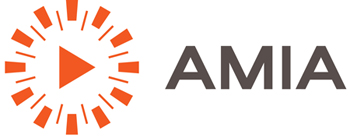Peer Review of Conference Proposals
The goal of the Conference is to present a broadly-based program that speaks to the wide range of attendees with a balance of theory and practice, inviting new ideas and concepts that may stimulate additional interest, involvement and educational benefit. In keeping with ongoing membership discussions about diversity and inclusion, we have urged proposers to use the conference sessions as an opportunity to include new voices and offer diverse viewpoints.
AMIA Conference proposals are reviewed by a Peer Review Panel. Peer Reviewers provide comments on the proposals, evaluating them for perspective, relevancy, expertise, and balance to assure the best possible program. Engaging AMIA members in the evaluation of Conference proposals ensures that a wide range of expertise and perspective is provided during the programming process. Reviewers come from AMIA committees as well as from a call to the membership.
Each panel member is matched to proposals based on their areas of expertise and is asked to provide comments and feedback on each of the proposals sent to them for review. In addition Peer Review includes evaluating the overall quality of the proposal and considering these questions:
- Is the topic timely? Does it reflect current discussions in the field?
- Is there new information being presented?
- How broad an audience does this topic speak to?
- Has the topic been discussed already or been repeated frequently?
- Is there a speaker outlined that is crucial to the success of the panel?
- Is there an effort to bring in new voices and diverse viewpoints on the subject?
- If a single presenter, does the proposal outline a clear perspective?
- If a panel presentation, is this a balanced point of view presented or are there other areas to be considered?
Other considerations include –
- AMIA policy is that speakers may only speak at two sessions during the conference. In the case of multiple proposals, comments about speakers are critical, especially when a speaker is essential to the success of a proposal.
- There are typically three programs offered in each time slot each day. Sessions should appeal to a number of attendees – peer reviewers consider how broad or narrow a topic might be.
The Committee uses the peer review results and comments to program a balance of sessions and workshop topics. These general areas include, but aren’t limited to Advocacy, Access, Cataloging/Metadata, Collections Management, Copyright/Rights Management, Development, Digital Media, Digital Asset Management, Education, Film, Film History, Magnetic Media, New Technology, Policy, Preservation, Programming/Curatorial, Operations/Leadership, Solutions/Problem Solving, Standards, and Technology.
